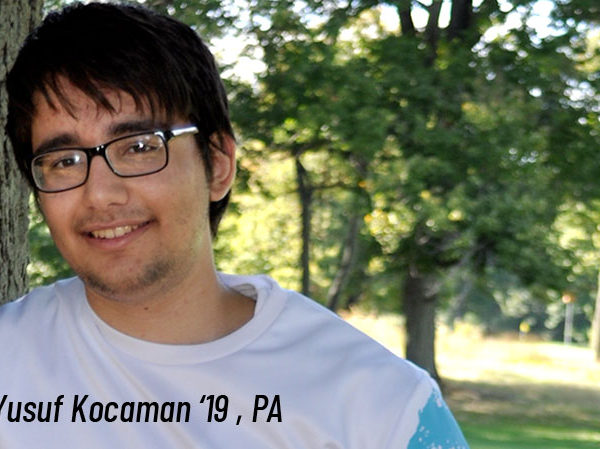Have you ever seen someone do something and thought to yourself: “why would he even do that?” or, “what mentality must one have to do something like that?” Well, I don’t know about you, but I sure have. Whenever someone does deliberately makes a choice to do an act, I always think about what motive or what justification he/she had to do that. Most of the time it may be easy to understand why?, but in certain cases I am left baffled. I can’t comprehend the reasoning behind what motive they would have; one of these things is hate, specifically racism.
A Muslim immigrant from Bangladesh has taught us how love can be an antidote to hate, and how violence against violence is not the answer to our ills.
Rais Bhuiyan’s story starts nearly two decades ago, when he first came to the U.S. as an immigrant. In one of his talks, he tells about his experience as he was first coming to the U.S. from Bangladesh, just three months before the 9/11. The pilot of the plane he was flying let him go up to the cockpit and that they had a friendly conversation. He says that something like this happening today is almost impossible and that he can’t even speak Arabic because it is considered as a security threat.
After 9/11, he spoke about an incident in which a man, holding a gun, walked into a store of a gas station he was working at. Thinking it was a robbery, Rais offered him the money in the cash register. The gunman asked him where he was from and even before he could reply, he shot him in the face. Rais lost one of his eyes. His assailant was convicted of murder and was sentenced to death. Luckily, he survived, unlike two of his friends in the gas station.
What Rais did next was very inspiring. Instead of watching him be killed and going on with his life, he fought for his assailant to not be executed. He thought that violence wouldn’t be solved with violence and that this person had to be taught.
When his assailant found out about him fighting for him not to be executed, he wrote a letter telling Rais that he was sorry and that whoever raised him raised him right.
When he was going to be executed he wished to talk with Rais. Rais told him that he never hated him and responded: “I love you bro.” It is amazing how someone who wanted to kill Rais out of hatred was saying that he loved him and even called him brother. Rais then founded a website called “worldwithouthate.org”, where he is fighting against hate.
I think that this is a very touching and powerful story. Just by not hating and loving, he changed the mindset of a man who, if not for the love, might have gone to his grave with full of hate. But with a single act of kindness, this man’s mind was changed forever — even though he was eventually executed.
There is a new trend in the world that has been getting more and more popular recently. This new “trend” is hate. Though there has always been hate in the world, some factors that exist today make it more violent than it had been before.
Innocent people are being bombed in Syria and Yemen, nerve gas is being used on civilians in Syria, including kids, and terrorist bombing attacks havoc the societies. The world is filled with hate and violence.
It is really sad that there are new generations that have to grow up in this environment of hate; it is sad to think about how these new kids will grow up. These kids might be affected by their environments and become hateful people themselves. If these kids will be hateful the future will also be one full of hate; scenarios of racism and discrimination that we see in dystopian novels like “The Hunger Games” might actually become realities. Imagine all of the hate and violence that we see today snowball and become bigger. The world would be a horrible place to live in.
Though there is hope. All of these dystopian scenarios can be easily avoided with minor social changes. Parents can teach progressive ideas to their kids and prepare them to be more tolerant. They could also teach them to be more open-minded and that even if they don’t agree with something, they should learn how to respect it.
I don’t think that everybody has to agree with everything, but hating a group of people because they are different, or hating an idea because it is different from one’s is very immature and is a main driving force of hate.
A big factor in countering hate is teaching the youth, the future generation, to be more tolerant and “thick-skinned.” Not only should the new generation be tolerant of others’ ideas and opinions, they should also be able to handle racism thrown towards their way and not make small things into such big deals, no matter how hard everybody tries. There will always be hate and that is a fact, but having less hate and not being affected too much by hate and standing up for the hated will make it seem like the hate doesn’t even exist.

